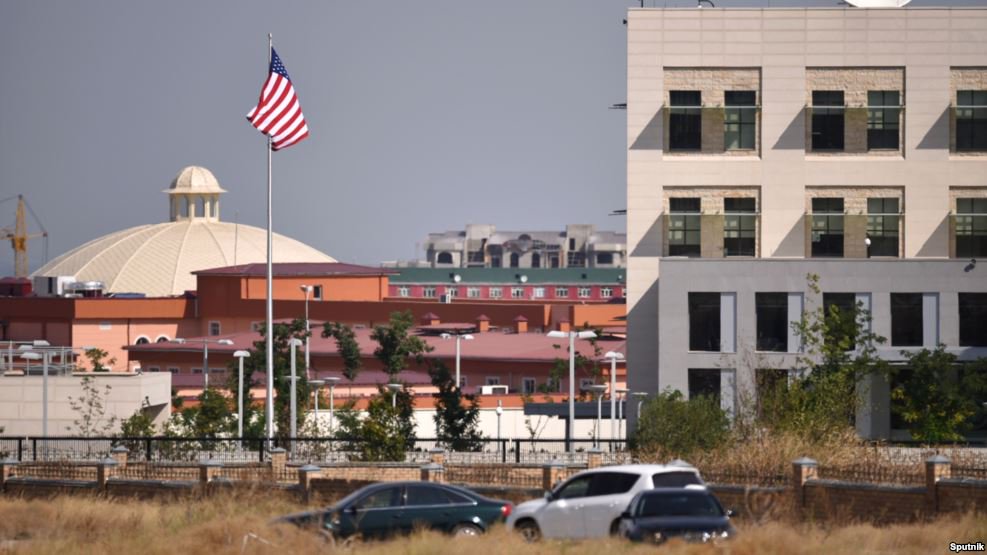
A new economic cluster to support Kyrgyzstan’s light industry is to be launched in Bishkek. The project initiated by the USAID aims to enhance the country’s light industry businesses and to provide grant support to entrepreneurs, said the press-office of the US Embassy in Bishkek.
However, the US initiative confronts the interests of the EU and China in the region. Earlier in April, President of Kyrgyzstan Sooronbay Jeenbekov made his first visit to Germany after becoming President in 2017. The purpose of the visit was to expand trade and economic relations with Germany, to attract EU’s investment in the region and to reform the banking sector of the country. As a result, 11 bilateral contracts were signed between Kyrgyz and German companies. Later in April Jeenbekov met with Chinese President Xi Jinping in purpose to “open a new page of Kyrgyz-Chinese relations” and to take part in the second One Belt One Road Forum.
Jeenbekov’s aim to have tighter relations with the EU and China is explained by the country’s ambitions to play a solid role in the Eurasia integration and to become a strategic transit zone for the global One Belt One Road initiative. On the other hand, the US economic policy in the country might disturb the EU transparent business approach and will lead to Washington’s control over Kyrgyz enterprises. Stronger positions of the US in Kyrgyzstan will also stall the plans of Beijing to integrate infrastructure projects in Kyrgyzstan . The aggravation of relations with China will have a negative impact on the Kyrgyz economy, given its high dependence on Chinese investment and the Bishkek’s inclusion into One Belt One Road initiative.
The current situation puts Kyrgyzstan at the crossroads and the way the country will choose will be defining its long-term development for the next decades. According to local politicians, the political and economic compass President Jeenbekov will choose will also play a crucial role during the 2020 Kyrgyz Presidential elections campaign.
